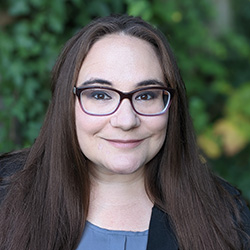How to become a notary
A notary’s duties are more wide-ranging than just stamping wills and documents.

Real estate deals; a final will and testament; adoption: What do these things have in common? They’re more than just momentous occasions in life. All of these are also legal, binding transactions and agreements. And that means that, if a notary wasn’t there to witness and sign off on them, these things may be perceived as never officially happening.
What is a notary?
A notary is an official appointed by the state who acts as an impartial witness during important legal document signings. Their presence helps deter fraud and ensures the legitimacy of transactions.
Notaries are, in essence, the eyes and ears of the law. It is their job to witness and verify the authenticity of government-issued IDs. Notaries confirm the signers are who they claim to be, and they attest to the willingness of each party to sign a document. This ensures that the signing is voluntary and free from coercion, protecting all parties involved.
Some common types of documents notaries will be called upon to witness signing include:
- Deeds and other real estate documents
- Wills and trusts
- Powers of attorney
- Loan documents
- Affidavits
- Contracts
- Passport applications (for children)
In addition to witnessing signatures and verifying identification, notaries add an element of oversight to complex legal proceedings. Their job is to take the element of uncertainty out of the signing process, double-checking that each signature is collected and each document is filled out completely and correctly.
Notaries may also help explain the contents of a document should any confusion arise. This ensures a complete understanding of the agreement for both parties and its potential legal implications.
Another important part of a notary’s job is to keep a record of all notarizations they perform, including dates, signer information, and document details. These records serve as important documentation for future reference and potential legal proceedings.
A career with a future (and a past)
Pat Kinsel, founder and CEO of Notarize, has helped reinvent the process of notarizing documents for the digital age. His online notary platform has made notarization quicker and simpler, connecting signees with heavily vetted signing agents any time, any day. He explains that, to understand why being able to digitize trust is so important today, we need only look to the past.
“Notarization is an age-old process,” Kinsel says. “It dates back to ancient Egypt, when making records official became essential to the development of human civilization. It’s a process that became a cornerstone of dozens of industries that rely on the legal standing notarization brings to validating a transaction.”
“The notary’s importance grew as they validated documents during the Roman Empire, into Colonial America, and onwards to the present. Today, more than 4 million Americans are commissioned as notaries, performing more than 1.25 billion notarizations every year to validate the documents that keep businesses moving forward while also protecting consumers from fraud and identity theft.”
Kinsel explains that, more and more, remote online notaries (also known as RONs) are becoming increasingly important across industries. “Who is this person? And did they actually sign? Those are highly consequential questions that need to be answered and solved for an increasingly digital and global online world.”
It’s a process that is too important to trust to technology alone, Kinsel adds, making notarizing a future-proof career. “Verifying an ID via machine learning and AI will always have points of failure. Businesses need humans in the loop—humans they can trust. Notarize allows this process to now be executed digitally, completely transforming what’s possible across the key industries it serves. This is the future of decentralized trust, where notaries can verify every person’s identity at the scale of the digital economy.”
Is becoming a notary a good fit for me?
Being a notary can be interesting, and rewarding and can earn you a tidy sum. However, there are some things you should know before you set off on this path. The most important thing to know is that most notaries don’t jump feet-first into a 40-hour-a-week notary position. It takes work to build a network of professionals who need a notary service.
The Bureau of Labor Statistics doesn’t track data regarding notaries, but there are professional organizations that do. The National Notary Association is one of those organizations. This association conducts routine surveys and research to provide insight into this industry, and its site offers plenty of resources to help new and established notaries improve their business.
Data from the National Notary Association indicates that most notaries work part-time, especially to start. More than 50% of mobile notaries earn $2,000 or more a month, and more than two-thirds of all full-time notaries earn $4,000 or more a month. No matter the individual earnings, job satisfaction and income combine to create a role that keeps notaries coming back: 88% of full-timers and 80% of part-timers consider their businesses profitable enough to continue working as mobile notaries.
Deciding whether a notary is right for you involves understanding your own interests, skills and lifestyle.
Here are a few questions to ask yourself before you give this career path more thought:
- Are you detail-oriented and meticulous?
- Being a notary requires accuracy and attentiveness to detail. You’ll handle important documents and ensure every step is followed correctly.
- Do you enjoy helping others?
- Notaries play a crucial role in facilitating legal processes for individuals and businesses. If you find satisfaction in assisting others, this could be a rewarding path.
- Do you appreciate flexible work arrangements?
- Many notaries operate independently, setting their own hours and workload. This can be ideal for those seeking flexibility.
- Are you comfortable with learning new things?
- Notary laws and procedures can change periodically, so ongoing learning and keeping up-to-date is crucial.
- Do you have the financial resources for initial expenses?
- Costs like bonding, supplies, and training need to be factored in. Consider if this aligns with your budget. Eligibility, fees and allowed notarization acts vary by location, so you’ll need to research the specifics in your state before investing time and money in initial expenses.
Steps to become a notary
Confirm that you’re eligible to become a notary.

There are a few basic eligibility requirements that apply in nearly every state. It’s given that notaries will be:
• at least 18 years old
• a citizen or permanent legal resident of the US
• able to read and write English
• residents of the state in which they’re applying (or their primary source of employment shall be based in that state)
The process is a straightforward one. Most states do not require notaries to receive any formal training or licensure prior to submitting an application.
Obtain a $10,000 surety bond.

A notary surety bond protects the general public of a given state against any financial loss due to improper conduct by a notary. You should obtain a $10,000 surety bond and order supplies not dependent on your commission. This includes your stamp and journal. A primer on the laws in your state can be a good idea too.
Submit your application and sign the Oath of Office.

This document confirms your understanding and fulfillment of notary responsibilities. You can complete this step online or by mail. You’ll need to include your bond and oath along with the application fee. While each state’s oath is worded differently, here is the current Oath of Office for the state of Washington to give you an example of what you’ll be expected to swear to:
I solemnly swear or affirm under penalty of perjury that the personal information I have provided in this application is true, complete, and correct; that I have carefully read the materials available at the Notary Public website describing the duties of a notary public in and for the state of Washington; and, that I will perform to the best of my ability, all notarial acts in accordance with the law and rules. I have carefully read the questions in the foregoing application and have answered them completely, and pursuant to RCW 9A.72.085, I declare under penalty of perjury under the law of the state of Washington that my answers and all statements made by me herein are true and correct. Should I furnish any false information in this application, I hereby agree that such act shall constitute cause for the denial, suspension or revocation of my appointment as a notary public in the state of Washington.
Order the remainder of your notary supplies.

Once your commission is approved, you’ll need to purchase a state-compliant seal. These generally cost between $30 and $50.
Optional, but recommended: Take a notary training course.

Taking a course specifically geared to becoming a notary will help you understand the duties and liabilities of the job. You’ll not only gain a deeper understanding of laws and procedures, but will obtain Errors and Omissions (E&O) insurance for potential risks.
Don’t forget: Renew your notary credentials
Notaries need to renew their appointments periodically, even though they may not undergo formal recertification in all states. There are several reasons why this is done.
The main reason notaries need to renew their credentials is to maintain competency. The legal landscape surrounding notarizations can and does change. New laws, regulations and best practices emerge over time. Renewals serve as a reminder for notaries to stay informed and current with these changes.
Renewals also serve as a periodic check-in on the notary’s compliance with their responsibilities and adherence to ethical standards. By requiring renewals, authorities can identify and address any concerns or potential misconduct. Renewal applications sometimes require updates on the notary’s contact information, ensuring efficient communication and easier accessibility for the public and authorities.
Renewing your notary credentials serves as a periodic check-in on the notary’s compliance with their responsibilities and adherence to ethical standards.
The practice of keeping current on your notary appointment also helps to maintain public trust. Up-to-date and accountable notaries contribute to the overall credibility and reliability of the notarization process. Regular renewals help maintain public trust in the system and protect individuals relying on notarized documents.
The specific requirements for renewal may vary by state, but the overall purpose is to ensure that notaries remain qualified, accountable and contribute to a reliable and trustworthy notarization system. The length of time each state issues notary credentials can vary. Most states, however, require notaries to renew their appointment around four years.
How much does a notary make?
Startup costs to become a notary are very slim compared to many other small businesses. However, being commissioned as a notary is hardly a way to get rich quickly. It takes time to build up a client base. Notaries often learn, early on, that specific types of notaries can earn more.
For instance, notary signing agents (also known as NSAs) have received special training to handle loan document signings. Title companies and signing services hire NSAs to deliver loan documents as well as oversee the signing and return of loan documents. The eligibility requirements for this kind of notary service are much more stringent, and you cannot become a signing agent until you are already a commissioned notary. However, this role has a much higher earning potential.
Data does not exist on the BLS for notaries or signing agents, however they do record salary data for Court, Municipal and License Clerks, which have some similarities to notaries as far as duties. Here are median annual salaries for this profession:
However, sites like NNA list notary fees by state. This should offer an idea of what you’re able to charge per in-person signature in your area. Remote online notary services (RONs) are typically more profitable since there is no regulated price for this act in many states.
Pat Kinsel says he’s seen notaries quickly turn their side gig into a full-time career. “Being a full-time notary is a fulfilling and lucrative job, and we see it becoming increasingly more common that people are notaries as a full-time job, given that it’s now remote and online and flexible.”
“Traditionally, we’d see in-office workers who would be a commissioned notary on top of having additional full-time roles and responsibilities. That’s becoming less common with the proliferation of online notaries who can be available on-demand.”
“There’s still a need and market for notaries who mainly service a specific industry, like real estate, but what’s great about being a notary is that you don’t have to be an expert in the industry you’re serving to be able to perform your duties as a trusted notary. You just need to be well-versed in notarial rules, laws and process.”
Where are notaries most in demand?
Notaries can offer their services to individuals across various industries, some sectors exhibit a higher demand due to the frequent need for document notarization. Here are some of the industries where notaries are most in demand:
Real estate: Closing transactions often involve numerous documents requiring notarization, making real estate a major source of clients for notaries. This includes deeds, loan documents, power of attorney for property transactions and closing affidavits.
Financial services: Loan applications, investment documents and trust papers frequently require notarization, leading to opportunities for notaries in banks, mortgage companies and investment firms.
Legal services: Law firms utilize notaries for witnessing contracts, affidavits and other legal documents for clients. Specialization in legal notarizations can attract dedicated clients within this industry.
Government agencies: Many government forms and applications need notarization, creating opportunities for notaries to collaborate with various departments like licensing, motor vehicles and social services.
Healthcare: Healthcare facilities may require notarization for advanced directives, medical power of attorney forms and consent documents, opening doors for notaries in hospitals, clinics and assisted living facilities.
Maritime industry: Documents related to vessel ownership, registration and crew contracts often require notarization, creating a niche market for notaries specializing in maritime notarizations.
Depending on location and specializations, notaries may find clients in sectors like education, insurance, business services and even entertainment for specific contracts or agreements.
Remember, the demand for notary services can vary depending on local regulations, business practices and individual needs. Researching your local market and considering potential niche specializations can help you assess where your services might be most in demand.
What being a notary is all about
Notaries follow a specific, state-specific protocol when they go to notarize a document. Here’s a set of sample of instructions taken from Washington state’s notary Oath of Office:
1. Confirm the identity of the applicant and place them under oath.
2. Have the applicant swear to or affirm the information in the Oath of Office.
3. Have the applicant sign and date the Oath of Office.
4. Complete the notarial certificate including county, date and your signature.
5. Print your name under your signature. Your title is “Notary Public.”
6. Fill in the expiration date for your Notary Public appointment.
7. Affix your stamp or seal in the space indicated.
8. Fill in the expiration date for your Notary Public appointment.
9. Affix your stamp or seal in the space indicated.
For a better idea of what your state’s specific protocol is, search for official forms and instructions on state-sanctioned websites where you reside. Depending on where you live, that could be located on sites for the Attorney General, Secretary of the State or Department of Licensing.
Skills a good notary needs
Notaries play a crucial role in ensuring the authenticity and legal integrity of documents. Having said that, the role itself may sometimes be as simple as applying a stamp and jotting down a few lines in your journal. But, beyond the official act of notarization, some key skills contribute to a notary’s overall success:
- Legal acumen:
- Knowing your state’s specific regulations and best practices is crucial for accurate and compliant notarizations.
- Document review:
- Analyzing documents for completeness, proper signatures and potential red flags demonstrates attentiveness and reduces risks.
- Accurate and neat recordkeeping:
- Maintaining a meticulous journal and documenting each notarization accurately is essential for accountability and legal purposes.
- Communication skills:
- Clearly explaining processes, answering questions confidently, and maintaining professionalism with diverse clients are crucial for building trust and rapport. Pat Kinsel highly recommends building this skill, saying that, “Notaries are often put in front of complete strangers, so being able to establish rapport quickly is key to getting through a transaction successfully.”
- Active listening:
- Understanding client needs and ensuring they comprehend the notarization process demonstrates attentive service and reduces errors.
- Customer service:
- Providing professional, courteous and timely service fosters client satisfaction and encourages referrals.
- Attention to detail:
- Acute attention to detail ensures accuracy in every step of the notarization process, minimizing errors and protecting your clients. This should not be discounted, and Kinsel echoed this sentiment. “Notaries also need to be able to pick up on cues that something might not be right,” he said. “Fraud is rampant in the world, not every signer has good intentions or is who they say they are, so being able to read for the signs usually found in body language is critical to stopping fraud in its tracks.”
- Integrity and objectivity:
- Neutrality and ethical conduct are paramount in upholding the public trust in the notary profession.
- Problem-solving skills:
- Recognizing potential issues during notarization and finding solutions calmly and appropriately helps ensure smooth transactions.
As an independent professional, self-motivation, initiative and continuous learning are key to building a successful notary business. By honing these skills and qualities, notaries can ensure their services are valuable, reliable and contribute to the smooth functioning of legal and financial transactions for their clients and the community.
How to make yourself stand out as a notary
Notaries who can turn their part-time notary gig into a full-time job suggest a few tips for building a better business quickly.
For one, keep flexible hours. Consider evenings, weekends or mobile notary services to cater to clients’ needs. A reliable notary who’s available on short notice is a hot commodity in sales, for instance.
You may find a niche more quickly if you specialize in certain or specific notarizations. Focusing on specific areas like loan signings, marine documents or RON (Remote Online Notarization) can attract specialized clients. Be sure to network in the circles you’re most interested in serving.
Also, keep your prices competitive. While being ethical, research reasonable market rates and consider offering introductory discounts or packages to attract clients.
Frequently asked questions (FAQs)
How long does it take to become a notary?
If you choose to complete a notary training class, these often take place as seminars and last no more than a day. Mandatory training, for states that require it, is typically anywhere from three to six hours long.
States that currently require applicants to pass a notary exam are: California, Colorado, Connecticut, Hawaii, Louisiana, Maine, Montana, Nebraska, New York, North Carolina, Ohio, Oregon and Utah. If this applies to you, the test usually lasts about an hour and may include fingerprinting.
After you complete any necessary exams or training, you will file your application. Processing times range from as few as two to as many as eight weeks. After your application is approved, it can take between four and six weeks, on average, to receive your license. At this point, you can then order your notary stamp and supplies, which generally take seven to ten business days to arrive.
How do I stay up-to-date on changes to notary laws and procedures?
Keeping up-to-date on notary laws and regulations is crucial to ensuring you’re providing accurate and compliant services. You can stay informed by subscribing to official sources, such as state government websites and Secretary of State newsletters, join professional organizations like the NNA or the American Association of Notaries (AAN) or by connecting with local notary groups. Many states require notaries to complete continuing education courses to maintain their commissions. These courses often cover updates on laws and regulations.
How much can I charge for my notary services?
Each state sets its own limits on what notaries can charge. They may dictate specific fees for different types of notarizations, or offer a general maximum fee that applies across all services. To find out the maximum notary fee in your state, check your state government’s website. Most states have dedicated sections on their official websites outlining notary laws and fees. Search for “notary public” or “notary fees” on your state’s website.
You may also consult the National Notary Association (NNA). This organization provides resources for notaries across the U.S., including a state-by-state fee chart.
How can I find clients as a notary?
There is no one way to find clients as a notary, but established notaries suggest that you network (attend business events, join professional organizations like the National Notary Association and connect with real estate agents, loan officers, attorneys and other professionals who frequently require notary services), establish relationships with businesses in your area (such as banks, title companies and shipping centers that may refer clients your way) and advertise (register on various online notary directories and freelance platforms like Thumbtack or Upwork and create professional profiles on platforms like LinkedIn and Facebook).
Resources
National Notary Association (NNA): The NNA offers a wealth of resources for notaries, including online communities, webinars, and publications like the “Notary Bulletin” with updates on relevant regulations. Consider becoming a member for even more benefits and networking opportunities.
American Association of Notaries (AAN): The AAN offers resources and updates on notary laws, focusing on Remote Online Notarization (RON) developments. They also deliver a newsletter full of industry-related updates and offer a free listing in their National Notary Locator service to help advertise your notary services.
Published: March 1, 2024




